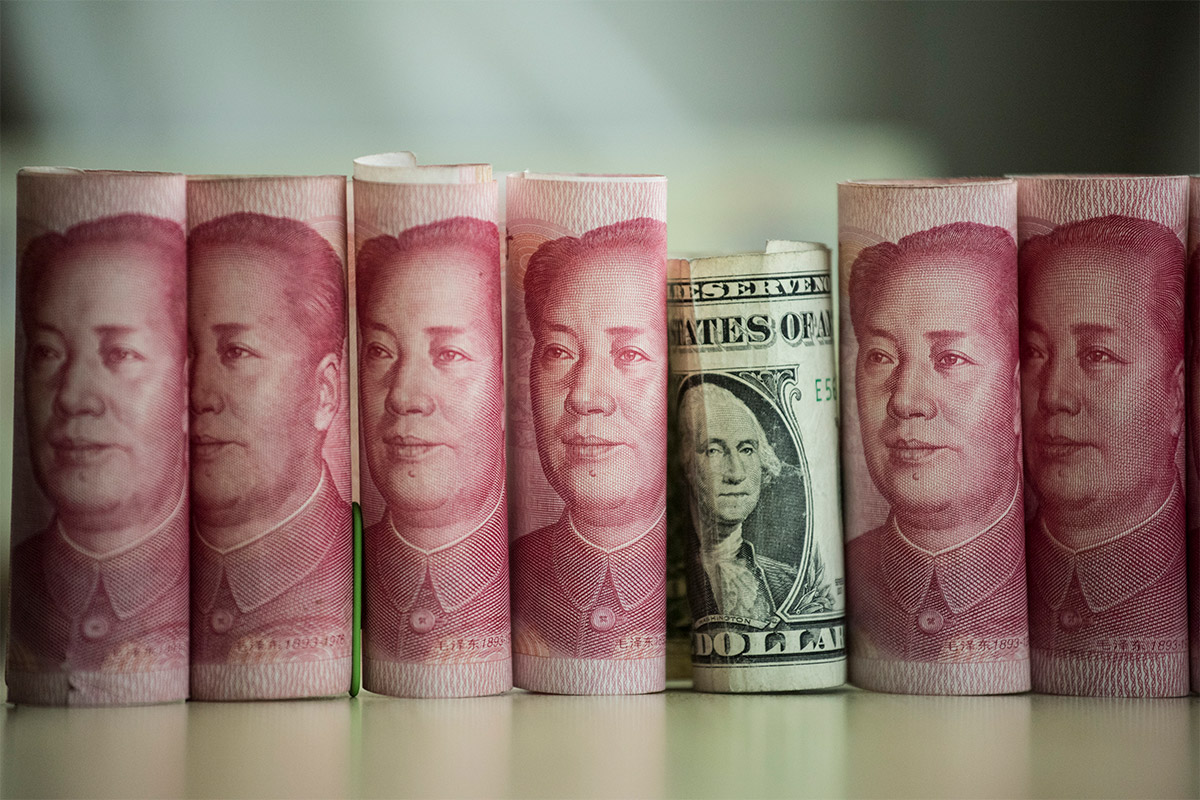A selloff in China’s currency deepened after the central bank moved to free up capital for banks and as investors braced for the next round in an escalating trade dispute with the United States (US). Stocks fluctuated, while government bonds were little changed.
The yuan slid as much as 0.4 percent to 6.5223 per US dollar, its weakest since 10 January, while the offshore exchange rate dropped for an eighth day. The Shanghai Composite Index added 0.1 percent and the yield on 10-year debt held near a two-month low. The People’s Bank of China (PBOC) on Sunday said it will cut the required reserve ratio for some banks by 0.5 percentage point.
A slew of negative factors - from a trade war with the US to the risk of a credit crunch - has weighed on China’s financial markets in recent weeks. The benchmark Shanghai stock index is on the brink of a bear market after tumbling almost 20 percent from its recent high, while analysts have started cutting their forecasts for the nation’s currency. Investors have been piling into the relative safety of government debt instead.
“The yuan is faced with a double whammy - escalating trade tensions are hurting sentiment and the easier monetary policy is also pressuring the currency," said Gao Qi, a currency strategist at Scotiabank in Singapore.
"Traders will step up shorting the yuan in the offshore market, but we won’t likely see massive fund outflows considering the capital curbs in place," he added.
The Treasury Department is planning to heighten scrutiny of Chinese investments in sensitive US industries under an emergency law. Under the plan, the White House would use one of the most significant legal measures available to declare China’s investment in US companies involved in technologies such as new-energy vehicles, robotics and aerospace a threat to economic and national security, according to people familiar with the plans.
Hong Kong’s Hang Seng Index dropped 0.3 percent. Energy shares rallied, led by China's largest producer of offshore crude oil and natural gas, CNOOC Ltd., after crude surged, while casinos and Chinese developers retreated.
The 10 year-yield hovered at 3.59 percent. The last time the PBOC cut the reserve ratio, in April, the yield fell the most since 2016.
“The bond market is a little disappointed, as many traders were expecting a one-percentage-point cut and some of them took profit,” said David Qu, an economist at Australia & New Zealand Banking Group Ltd. in Shanghai.
“The room for further declines in the yield is limited, as interest rates are rising globally and a marginally loose Chinese monetary policy is already priced in.” - Bloomberg
